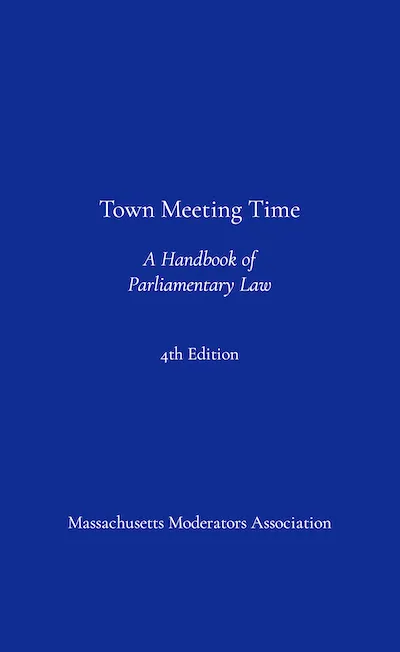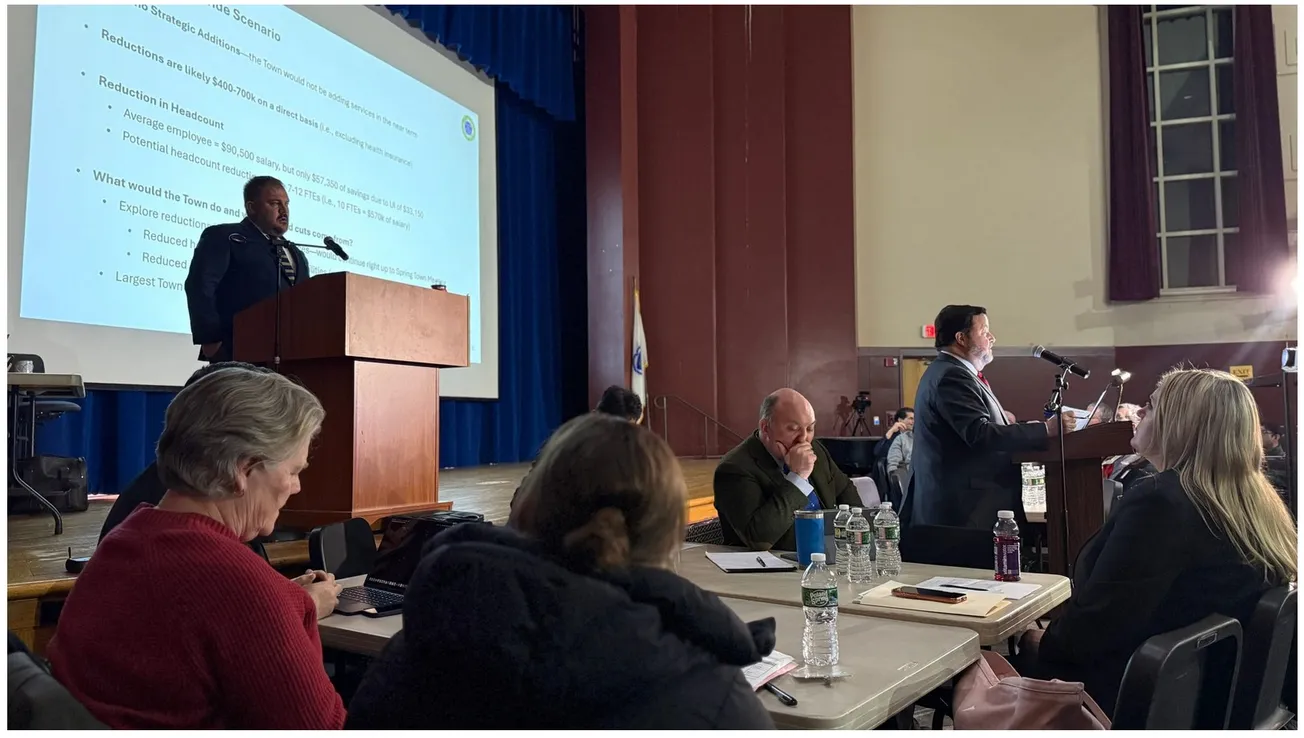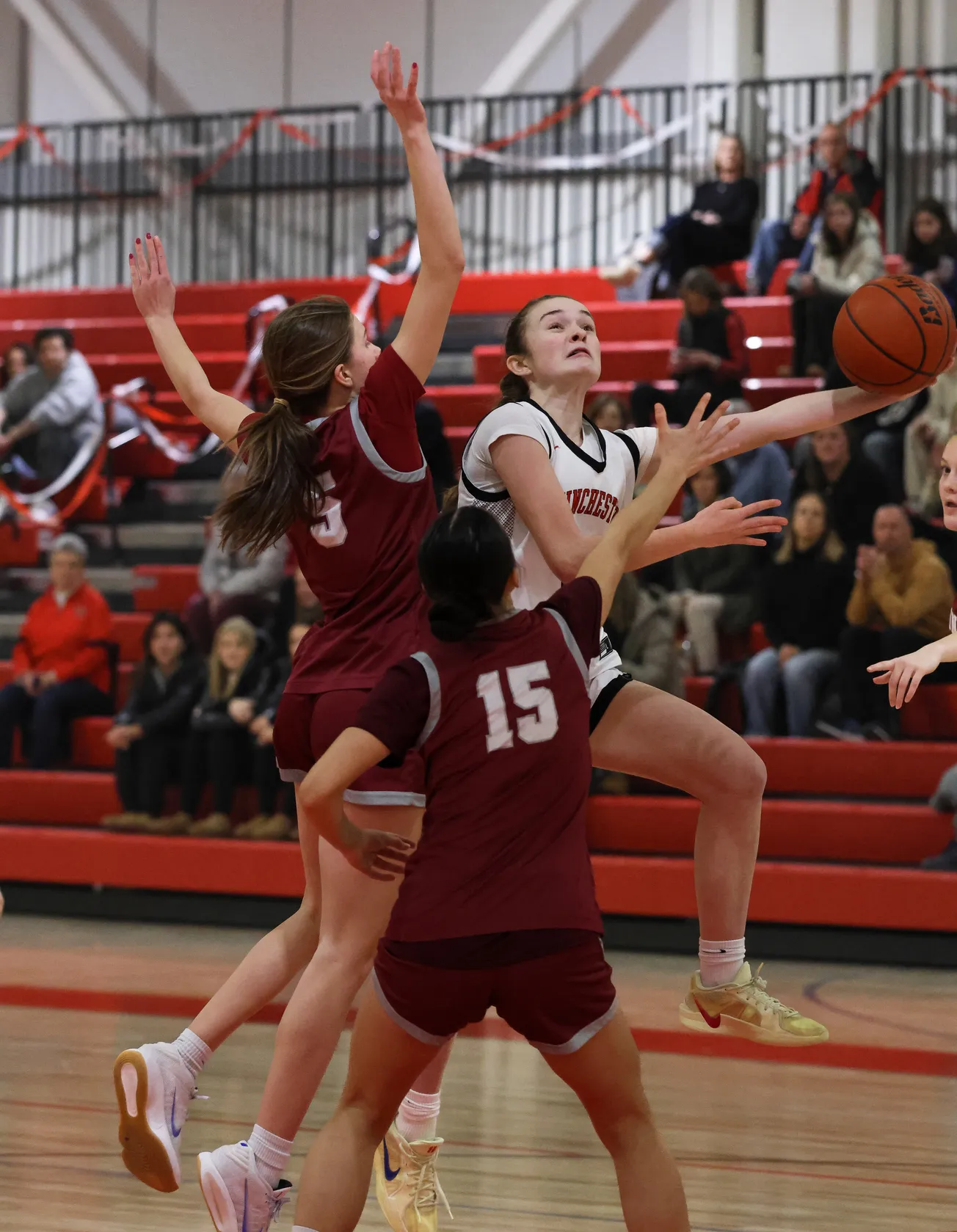Table of Contents
At Winchester’s upcoming Spring Town Meeting — which opens April 28 — members will consider whether to replace “Robert’s Rules of Order” with “Town Meeting Time” as the procedural framework that governs how Town Meeting is run.
The change is outlined in Article 38 of the 2025 warrant and is part of a broader package of 18 proposed bylaw amendments submitted by the Committee on Government Regulations (COGR) after a months-long decennial review process.
The proposed shift in parliamentary procedure was developed in consultation with the town moderator and town counsel and received unanimous support from the committee.
According to COGR’s report, “Town Meeting Time” — a manual created by the Massachusetts Moderators Association and used in many New England communities — is better suited to the structure and pace of local legislative meetings.
The switch would take effect in fall 2025 if approved by both Town Meeting and the Massachusetts Attorney General.
Currently, Winchester operates under “Robert’s Rules of Order,” but in practice, the town often deviates from its more complex structure. Winchester’s bylaws already specify speaker time limits and reconsideration rules, and its moderators routinely apply discretion not typical under “Robert’s Rules of Order.” Adopting “Town Meeting Time” would formalize a shift toward practices already in use.
Here is a brief look at how the two practices differ:
Purpose and scope
“Town Meeting Time” was written specifically for Massachusetts town meetings. It reflects the legislative structure used across the Commonwealth, where residents serve as elected lawmakers.
In contrast, “Robert’s Rules of Order” was written for civic, corporate, and military bodies, and while it has become a national standard for many organizations, it was never intended for local government meetings.
Language and accessibility
The language of “Town Meeting Time” is direct, plainspoken, and accessible to non-specialists. It is meant to be understood by residents who serve as Town Meeting members but do not have a legal or procedural background.
“Robert’s Rules of Order” spans more than 700 pages and is written in formal legalistic language that can be difficult for participants to interpret without training.
Procedural complexity
“Town Meeting Time” emphasizes clarity and function. It avoids the complex hierarchy of motions and the rigid classification system used by “Robert’s Rules of Order.”
While “Robert’s Rules” provides structure for many types of deliberative assemblies, its procedures are often more than what’s needed to manage a Massachusetts town meeting efficiently.
Role of the moderator
Moderators under “Town Meeting Time” are given more discretion to manage proceedings, interpret rules, and move discussion forward. The manual assumes a local, consensus-driven model of governance.
Under “Robert’s Rules of Order,” the chair must adhere to a strict rulebook that limits their discretion and slows down proceedings through procedural formality.
Motion procedures
The motion system in “Town Meeting Time” is streamlined and focuses on the types of actions typical at a local legislative meeting.
“Robert’s Rules of Order” categorizes motions into several types—main, subsidiary, incidental, privileged—and applies specific rules to each. This structure, while thorough, is often more complicated than necessary in town meeting settings.
Ending debate
Both rulebooks allow members to move to end debate, but “Town Meeting Time” gives moderators more flexibility in how the motion to move the question is handled. Under “Robert’s Rules of Order,” the motion must be seconded and pass by a two-thirds vote, with little room for moderator judgment. In practice, “Town Meeting Time” makes it easier to move to a vote when discussion has run its course.
Reconsideration of motions
In “Town Meeting Time,” a motion to reconsider is treated as a main motion and can be introduced by any member when no other business is pending. It is typically taken up at the next session unless Town Meeting agrees to hear it immediately.
“Robert’s Rules of Order” limits reconsideration to members who voted on the prevailing side and requires that it be brought forward within the same session, adding procedural hurdles.
Voting methods
Under “Town Meeting Time,” the default voting methods are voice vote, show of hands, or standing vote. A counted vote can be requested, and the moderator has discretion to order one.
“Robert’s Rules of Order” outlines numerous voting methods and, depending on the motion, may require a specific type such as ballot or roll call — making the process more complex than necessary for local matters.
Appeals of the moderator’s decisions
“Town Meeting Time” allows for appeals of a moderator’s rulings, but the process is informal and typically resolved through a brief discussion and vote. “Robert’s Rules of Order” requires a specific motion to appeal, a second, and in some cases, debate on the appeal itself before a vote is taken. This can interrupt the flow of the meeting and discourage members from raising procedural concerns.
Alignment with Massachusetts law and practice
“Town Meeting Time” is the procedural authority used by most towns in Massachusetts and is endorsed by the Massachusetts Moderators Association. It aligns closely with state law, town custom, and the typical operations of a New England town meeting.
“Robert’s Rules of Order,” while respected nationally, is not tailored to this context and often must be adapted or overridden by local bylaws or moderator interpretation.





